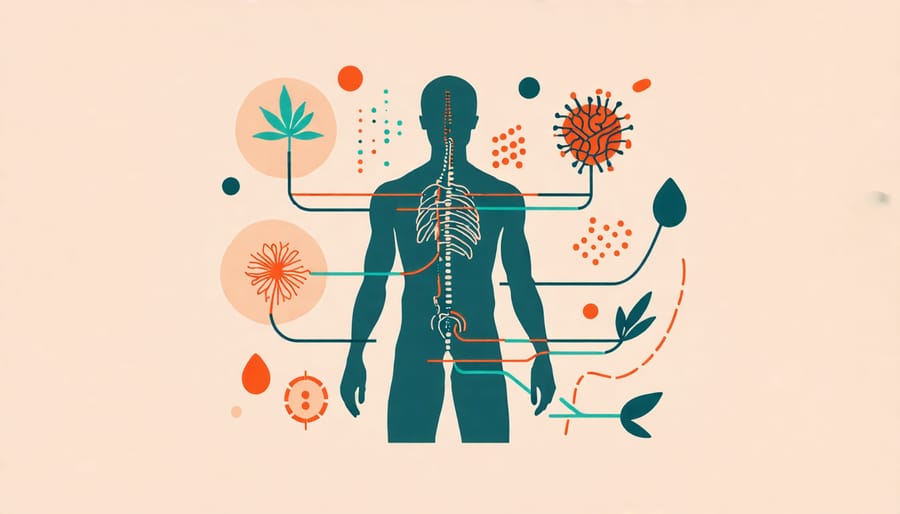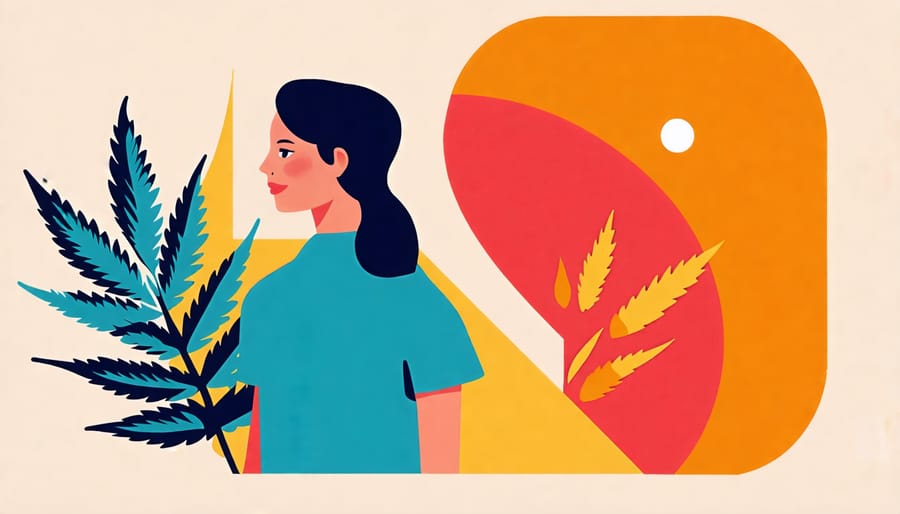Explore the use of THC flower to alleviate symptoms of Chronic Fatigue Syndrome (CFS) safely and effectively. Start by researching reputable sources that outline the benefits of using thc-a flower for symptom relief. Consult with a healthcare professional to tailor the dosage and method of use to your individual needs, ensuring safe consumption. Engage with support communities to learn about personal experiences and gather insights from others navigating similar challenges. Monitor your body’s responses, adjusting your approach as necessary, to maximize relief while minimizing potential side effects.
Understanding CFS and Its Symptoms
Chronic Fatigue Syndrome (CFS) is a complex and often misunderstood condition. For individuals diagnosed with CFS, and their families and caregivers, understanding the symptoms and challenges can be crucial. While fatigue is the most commonly recognized symptom, CFS encompasses a broader array of physical and mental health issues. People with CFS often report unrelenting tiredness that doesn’t improve with rest, disrupting their daily lives and activities.
The physical symptoms may include muscle aches, joint pain, headaches, and sore throats. Many people also experience cognitive difficulties, often referred to as “brain fog,” which can affect memory, concentration, and the ability to process information. These symptoms can be unpredictable, varying in intensity and making it difficult for those with CFS to plan their days effectively.
The mental health impact of living with CFS is equally significant. Chronic health challenges can lead to feelings of isolation, anxiety, and depression. The unpredictable nature of symptoms often means that social plans can be disrupted, leading to a sense of disconnection from friends and community. However, understanding these symptoms is the first step in managing and finding ways to cope with them.
Emphasizing community support is vital. As one story shared by those living with CFS highlights, a supportive network of family, friends, and healthcare professionals can make a difference in navigating this condition. By building awareness about the complexities of CFS, we can foster a more empathetic and informed environment for those affected, opening doors to discussions about potential treatments and lifestyle adaptations.
What is THC Flower?

Basics of THC and the Endocannabinoid System
If you’re living with Chronic Fatigue Syndrome (CFS) or supporting someone who is, you might be exploring various ways to manage its challenging symptoms. One potential option you might have come across is THC, a compound found in cannabis. THC, or tetrahydrocannabinol, is known for its psychoactive properties, which can sometimes help in relieving chronic pain and improving mood. But how exactly does it work?
Our bodies naturally produce compounds similar to those found in cannabis through the endocannabinoid system (ECS). The ECS plays a crucial role in regulating functions like sleep, mood, and pain sensation. When THC interacts with the ECS, it can influence these functions, potentially offering relief to some of the discomforts associated with CFS.
While the thought of using THC might seem daunting, many in the community have found it a helpful tool in their CFS journey. It’s important to consult with healthcare professionals and consider personal experiences and comfort levels when exploring new treatment options.
Forms and Consumption Methods
THC flower, also known simply as cannabis or marijuana, can take various forms, each offering unique benefits and experiences. For individuals managing Chronic Fatigue Syndrome (CFS), exploring these options could be a step toward finding a personalized approach to symptom relief. Dried cannabis flower is commonly consumed by smoking, offering a quick onset of effects which might be beneficial for those needing immediate relief from symptoms like pain or fatigue. Vaporization is another popular method that releases THC without combustion, potentially reducing harmful by-products and allowing for a more discreet consumption experience. Some might prefer incorporating THC flower into homemade edibles or teas, which often provide a longer-lasting effect—ideal for sustaining symptom management throughout the day.
Community stories often highlight how different methods can fit seamlessly into daily routines while offering comfort and relief. It’s crucial, however, to remember that what works for one person might differ for another, emphasizing the importance of personal experimentation and consulting with healthcare professionals to find the most suitable method for your unique needs.

THC Flower for CFS Symptom Relief: A Closer Look
Potential Benefits for Fatigue and Pain
For those navigating the challenging terrain of Chronic Fatigue Syndrome (CFS), the promise of relief through THC flower might spark curiosity and hope. Many individuals with CFS experience overwhelming fatigue that traditional treatments don’t always address effectively. This is where THC flower, with its active compound known as tetrahydrocannabinol, may offer an alternative route to symptom management. Scientific studies and anecdotal reports suggest that THC has potential benefits in alleviating symptoms of chronic pain and helping manage severe fatigue. This has led to increased interest among patients seeking complementary therapies.
For some, THC flower has been noted to provide temporary relief from debilitating pain, creating a path toward improved quality of life. It may also play a role in enhancing energy levels, albeit gradually, which can help users feel more engaged and active in daily life. It’s important to acknowledge that experiences can vary significantly from person to person. A supportive community where individuals can share their personal stories and learn from each other’s experiences can be invaluable. If you’re living with CFS, connecting with others who understand the delicate interplay between depression and fatigue might offer additional insights and encouragement.

Improving Mental Health and Well-being
Living with Chronic Fatigue Syndrome (CFS) can feel like an uphill battle, often accompanied by anxiety and fluctuating moods. Many in the community have turned to THC flower as a means of finding some relief. Anecdotal evidence suggests that its properties might help ease the mental strain that often accompanies CFS. Some individuals report an improved sense of calm and reduced anxiety after using THC flower, which can be a game-changer when dealing with the overwhelming nature of CFS.
Mood swings and depression are not uncommon for those with CFS, and the potential mood-enhancing effects of THC may offer some comfort. The relaxing properties of THC might also contribute to better sleep, which is crucial for overall mental well-being. While personal experiences vary, stories from within the CFS community often highlight a newfound sense of balance and emotional relief.
It’s vital to approach this option with care, understanding the importance of proper dosage and monitoring how your body responds. As more people seek alternative ways to manage their symptoms, knowing that there are community-driven discussions and shared experiences can provide a sense of hope and support on this journey.
Navigating the Use of THC Flower Safely
For those living with Chronic Fatigue Syndrome (CFS), exploring treatment options can feel overwhelming. When considering THC flower as a potential remedy, safety and informed choices are key. First and foremost, understanding the legalities in your area is essential. Laws regarding THC can vary significantly, so confirm whether its use is permissible where you live.
Consulting with a healthcare professional is a critical step. While THC flower might offer symptom relief, it can also interact with other medications or conditions. A healthcare provider can offer personalized advice, ensuring a holistic approach to your well-being. It can also be helpful to connect with others who have experienced CFS and THC use. Sharing personal stories might provide valuable insights into what to expect and how to navigate potential challenges.
Start with small doses if you decide to try THC flower. Everyone’s body reacts differently, so gradual experimentation can help gauge how it affects your symptoms, such as fatigue or pain. Also, consider the method of consumption—whether smoking, vaping, or using edibles—as each has unique effects.
Remember, there is no one-size-fits-all solution for CFS. Encourage open communication with your support network and healthcare team to tailor your approach. While the path may be unique for each person, you’re not alone in this journey.
Personal Stories and Community Support
Living with Chronic Fatigue Syndrome (CFS) can be a challenging journey, but many individuals have found community and support through shared experiences with THC flower. Jane, a CFS patient, recalls how discovering THC flower opened up a path she hadn’t considered for managing her symptoms. She found relief in smaller, manageable doses, allowing her to more effectively cope with CFS.
Similarly, Mike, a caregiver to his partner with CFS, shared how joining online forums helped them both learn and exchange advice on safe usage. Stories from fellow members who have explored THC flower as a therapeutic adjunct have been invaluable. Each anecdote serves as a beacon, offering real-life insights and fostering a sense of unity.
This growing community emphasizes the importance of shared learning, recognizing that every journey is unique yet interconnected. Together, they navigate this path with hope, support, and a deepened understanding of their shared challenges and victories.
Conclusion
In exploring the potential of THC flower for relieving symptoms of Chronic Fatigue Syndrome (CFS), it’s crucial to embrace a thoughtful and informed approach to personal health decisions. For many dealing with CFS, finding relief can feel like navigating uncharted waters, but the personal stories shared by individuals who have found benefit in THC flower highlight a promising path. While scientific research is still evolving, anecdotal evidence suggests that some people experience improved symptom management when incorporating THC flower into their treatment plan.
It is important to consult with healthcare professionals and consider how THC flower may complement existing treatment strategies. By actively participating in supportive communities and sharing experiences, individuals with CFS can gain valuable insights into managing their condition. Remember, everyone’s journey is unique, and kindness towards oneself during this process is essential. Empower yourself through knowledge and community support to make decisions that align best with your health and well-being.






